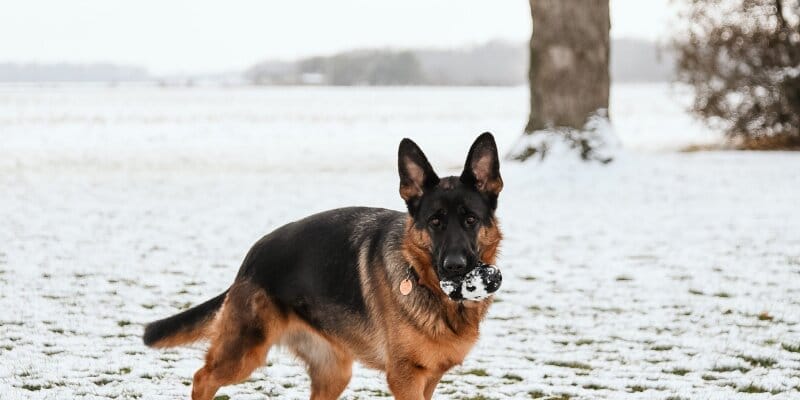How Much Human Food Can Dogs Eat Safely

How Much Human Food Can Dogs Eat? A Guide to Safe Feeding Practices
Many dog owners often find themselves tempted to share their meals with their dogs. While it’s natural to want to treat our dogs with the same foods we enjoy, it’s crucial to understand that not all human foods are safe for dogs. So, how much human food can dogs eat without risking their health? Let’s delve into this important topic to ensure the well-being of our beloved pets.
Understanding Dogs’ Nutritional Needs
Before discussing which human foods are safe for dogs, it’s essential to understand their nutritional requirements. Dogs have different dietary needs than humans, primarily requiring a balanced diet rich in protein, fats, carbohydrates, vitamins, and minerals. While some human foods can provide these nutrients, others can be harmful or even toxic to dogs.
What humans foods can dogs eat?
While it’s best to stick to a high-quality commercial dog food to meet your pet’s nutritional needs, there are some human foods that can be safely incorporated into their diet in moderation. These include:
- Lean meats such as cooked chicken, turkey, and beef (without bones or seasoning).
- Plain cooked rice and pasta.
- Certain fruits like apples (without seeds), bananas, and blueberries.
- Vegetables such as carrots, green beans, and sweet potatoes (cooked and unseasoned).
- Plain, unsalted peanut butter (in small amounts as a treat).
Moderation is Key
While these human foods can be safely given to dogs, it’s crucial to emphasize moderation. Feeding large amounts of human food, even safe ones, can lead to digestive upset, obesity, and nutrient imbalances. Additionally, some foods like grapes, raisins, chocolate, onions, garlic, and xylitol (found in sugar-free gum and candies) should never be fed to dogs as they are toxic and can cause serious health issues.
Consulting with a Veterinarian
Every dog is different, and what works for one may not be suitable for another. It’s always wise to consult with a veterinarian before introducing new foods into your dog’s diet, especially if your pet has any underlying health conditions or allergies.
Signs of Digestive Upset
Even when feeding safe human foods in moderation, it’s essential to monitor your dog for any signs of digestive upset. These may include vomiting, diarrhea, lethargy, or changes in appetite. If you notice any of these symptoms, discontinue the new food and consult your veterinarian.
Best human food for dogs
Let’s explore some safe and healthy options to pamper our furry friends while keeping them in the best of health.
Lean Meats
Lean meats such as cooked chicken, turkey, and beef can make excellent treats for dogs. These protein-rich foods are not only tasty but also provide essential nutrients to support their overall health. Just remember to remove any bones and seasonings before offering them to your pup.
Fruits
Certain fruits can be a delightful and nutritious addition to your dog’s diet. Apples (without seeds), bananas, and blueberries are excellent choices. These fruits are packed with vitamins and antioxidants, promoting good health and adding a burst of flavor to your dog’s snack time.
Vegetables
Vegetables are another great option for dog-friendly treats. Carrots, green beans, and sweet potatoes are low in calories and high in fiber, making them ideal for dogs watching their weight. Plus, they provide essential vitamins and minerals to support your dog’s overall well-being.
Peanut Butter
Who doesn’t love peanut butter? Luckily, dogs can enjoy this tasty treat too – in moderation, of course. Opt for plain, unsalted peanut butter without any added sugars or artificial sweeteners. Spread a thin layer on a toy or treat puzzle for a fun and delicious snack that will keep your pup entertained for hours.
What human food can dogs eat for breakfast
For breakfast, dogs can enjoy some of the same foods we do, as long as they are safe and nutritious. Cooked eggs are a great option, providing protein and essential amino acids. You can also offer plain yogurt, which is a good source of calcium and probiotics for digestive health. Another option is plain, cooked oatmeal, which is gentle on the stomach and provides fiber to aid digestion. Just be sure to avoid adding any sugar, salt, or other toppings that could be harmful to your furry friend. With these simple and wholesome choices, you can give your dog a nutritious start to their day.
What human food can dogs eat to gain weight
If your dog needs to gain weight, there are several human foods you can incorporate into their diet to help them bulk up in a healthy way. One option is cooked, plain chicken or turkey, which is high in protein and easy to digest. You can also offer cooked, lean beef or pork as a protein-rich addition to their meals. Additionally, incorporating healthy fats like olive oil or coconut oil into their food can provide extra calories to promote weight gain.
Another option is to mix in some plain, unsweetened yogurt, which is not only rich in protein but also contains beneficial probiotics for digestive health. By including these nutritious and calorie-dense foods in your dog’s diet, you can help them reach a healthy weight while ensuring they get the essential nutrients they need.

What human food can dogs eat daily
When it comes to incorporating human food into your dog’s daily diet, it’s essential to choose options that are safe, nutritious, and suitable for their digestive system. One staple that dogs can enjoy daily is cooked, plain chicken or turkey, which provides a good source of lean protein. Additionally, cooked vegetables such as carrots, green beans, and sweet potatoes can be included to add essential vitamins and fiber to their diet. Another excellent choice is cooked rice or pasta, which can serve as a source of carbohydrates for energy.
Finally, small amounts of fruits like apples (without seeds), bananas, and blueberries can provide antioxidants and natural sweetness. By offering these human foods in moderation alongside a balanced commercial dog food, you can ensure that your furry friend enjoys a healthy and varied diet every day.
What human food can dogs eat with kidney diseases
When it comes to dogs with kidney disease, it’s crucial to be cautious about their diet to manage their condition effectively. While every dog’s dietary needs may vary depending on the severity of their kidney disease, there are some human foods that can be included in their diet with moderation and under the guidance of a veterinarian. For example, cooked, lean meats such as chicken or turkey can provide high-quality protein without putting excess strain on the kidneys.
Additionally, cooked eggs can be a good source of protein and essential amino acids. Low-phosphorus fruits and vegetables like apples, blueberries, and carrots can also be included in small amounts to add variety and essential nutrients to their diet. However, it’s essential to avoid foods high in phosphorus, sodium, and protein, such as cheese, processed meats, and certain grains, as they can exacerbate kidney issues.
Conclusion
While it can be tempting to share our meals with our dogs, it’s important to prioritize their health and well-being. By understanding how much human food can dogs eat and which foods are safe, we can ensure that our pets enjoy a healthy and balanced diet. Remember, moderation is key, and when in doubt, always consult with a veterinarian. By taking these precautions, we can continue to cherish the special bond we share with our canine companions for years to come.
FAQs
Q: What can I feed my dog instead of dog food?
A: While commercial dog food is formulated to meet your dog’s nutritional needs, you can also incorporate some human foods into their diet. Options include cooked lean meats like chicken or turkey, cooked vegetables such as carrots or green beans, and plain rice or pasta. Always ensure that any human food offered to your dog is safe and appropriate for their digestive system.
Q: What’s the healthiest food to feed your dog?
A: The healthiest food for your dog will depend on their individual needs and dietary requirements. A balanced commercial dog food that meets AAFCO (Association of American Feed Control Officials) standards is typically the best choice. Look for high-quality brands with real meat as the main ingredient and minimal fillers or artificial additives.
Q: What is the best home food for dogs?
A: Cooked lean meats like chicken or turkey, along with cooked vegetables such as carrots or green beans, are often considered the best home foods for dogs. These options provide protein, vitamins, and minerals essential for your dog’s health. Be sure to avoid seasonings, sauces, and ingredients that could be harmful to your pet.
Q: Is it OK to feed your dog human food every day?
A: While it’s generally safe to include some human food in your dog’s diet, feeding them human food every day may not provide a balanced and complete nutrition. Commercial dog food is specifically formulated to meet your dog’s nutritional needs, so it’s best to use it as the main component of their diet. Human food can be given as occasional treats or supplements, but moderation is key to prevent digestive issues or nutritional imbalances.
Q: What is a dog’s favorite food?
A: Every dog is unique, and their favorite foods can vary. However, many dogs enjoy lean meats like chicken or beef, as well as treats such as peanut butter or cheese. Ultimately, your dog’s favorite food will depend on their individual preferences and tastes.






